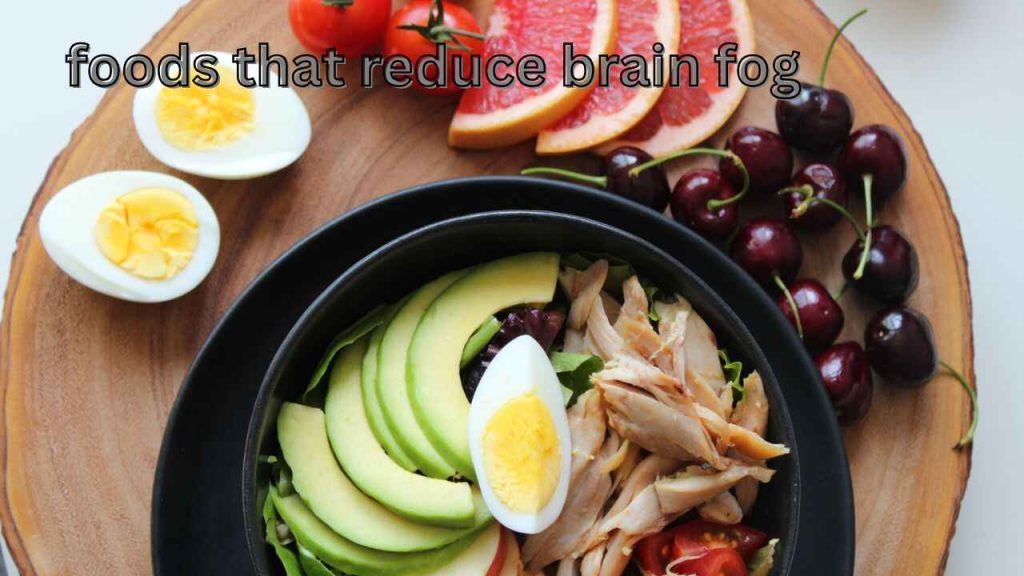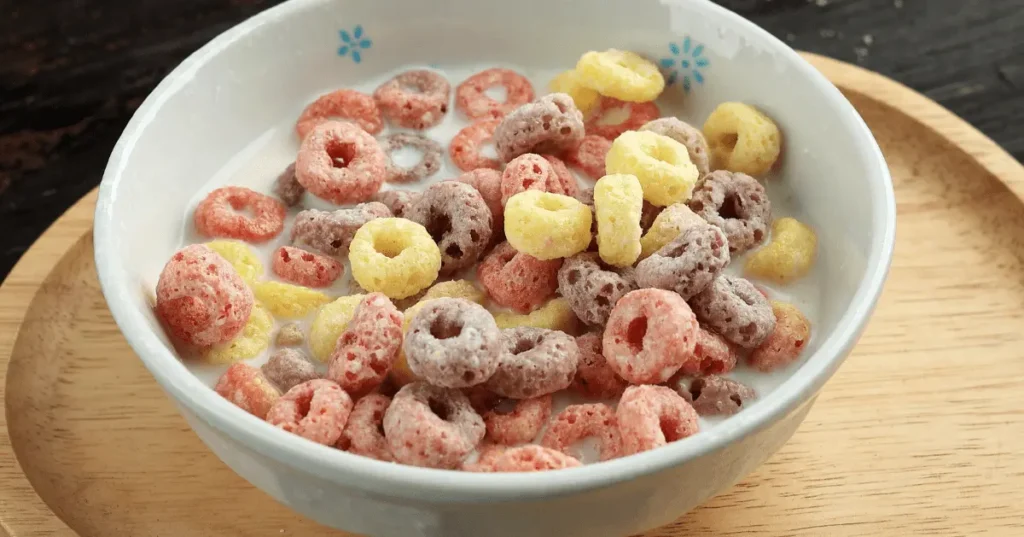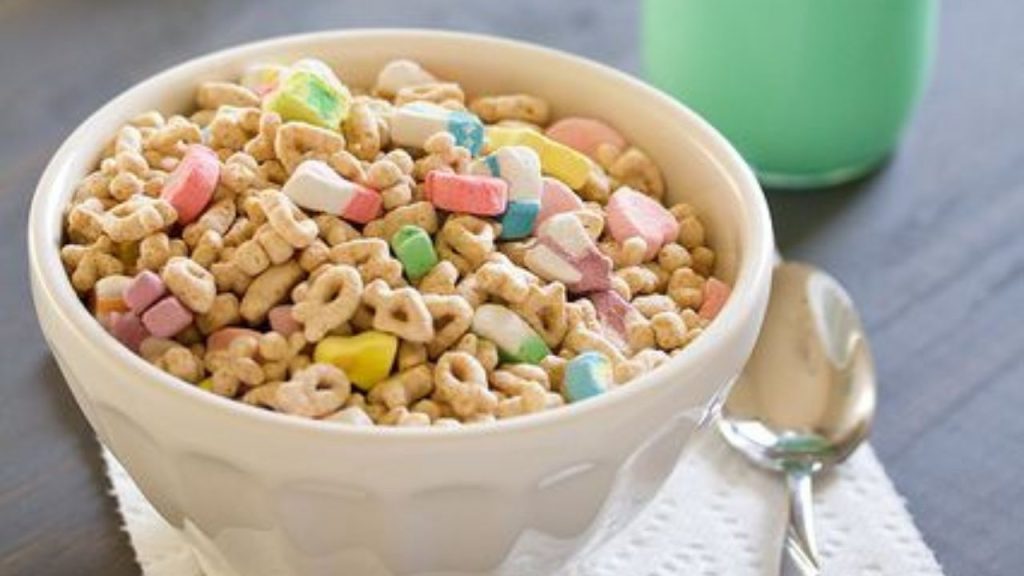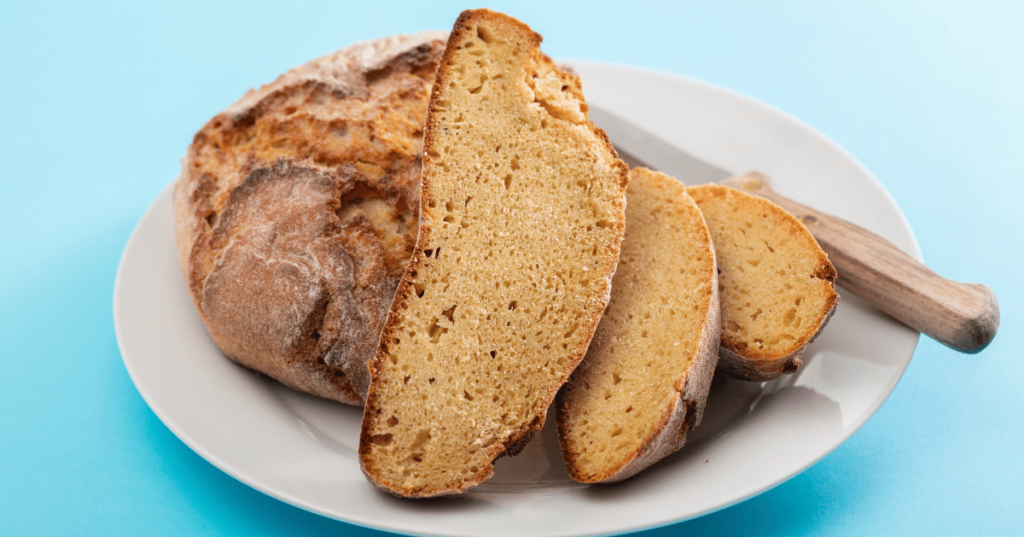Tired of feeling mentally sluggish? Discover 10 brain-boosting foods that reduce brain fog and sharpen your focus, naturally and effectively.
Foods That Reduce Brain Fog
Have you ever walked into a room and forgotten why you went there? Or stared blankly at your screen, struggling to string a single productive thought together? Yep, that cloudy, sluggish feeling is called brain fog, and it’s something we all experience from time to time.
But here’s the good news: what you eat plays a massive role in how clear and focused your mind feels. That’s right — your brain health is directly connected to your plate. In this article, we’re diving into the top foods that reduce brain fog, boost mental clarity, and help you feel sharper, more energized, and alert throughout the day.
What is Brain Fog?

Before we jump into the superfoods, let’s take a quick look at what brain fog actually is.
Brain fog isn’t a medical condition on its own, but it’s a symptom of something else — like stress, poor sleep, lack of nutrients, or even blood sugar imbalances. Common signs include:
- Forgetfulness
- Trouble concentrating
- Confusion
- Lack of mental clarity
- Low energy
Fortunately, certain foods can help clear the haze and feed your brain what it truly needs.
1. Leafy Greens — Nature’s Brain Cleanser
Let’s begin with the fundamentals. Antioxidants, vitamins (particularly folate and vitamin K), and fiber are abundant in spinach, kale, Swiss chard, and collard greens.
Why they are beneficial
- They lessen cerebral inflammation.
- Encourage concentration and memory are abundant in nitrates, which enhance cerebral blood flow.
Tip: Sauté spinach with garlic for a tasty side dish or add it to salads and smoothies.
2. Fatty Fish — The Ultimate Brain Fuel
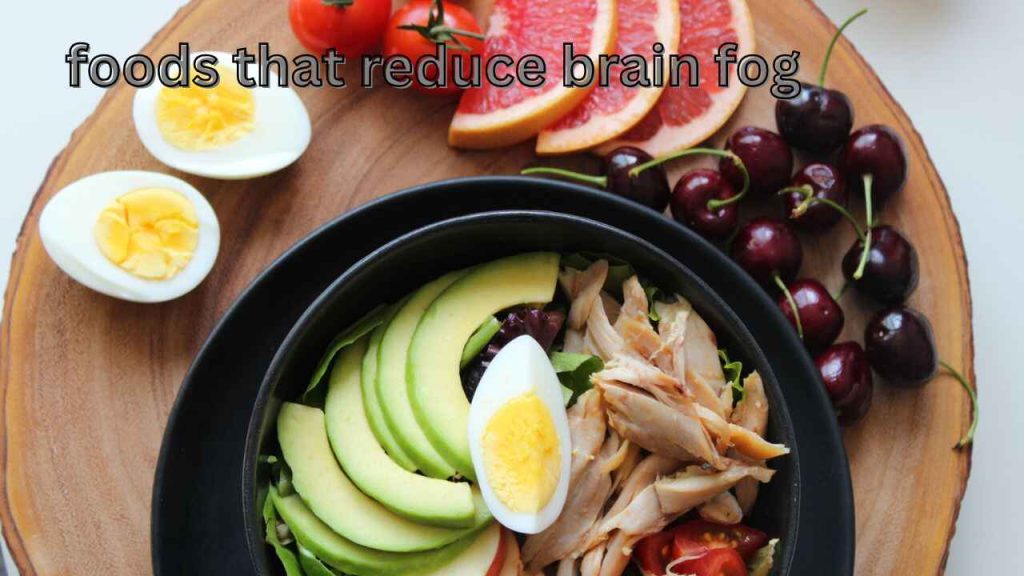
Fish high in omega-3 fatty acids, particularly DHA, which is essential for brain function, include salmon, sardines, trout, and mackerel.
Why they are beneficial
- Cut down on inflammation
- Increase the activity of neurotransmitters
- Boost mood and memory
Bonus: Studies have even connected omega-3 fatty acids to a lower risk of Alzheimer’s.
3. Blueberries — Tiny but Mighty
Despite their diminutive size, blueberries are powerful. There’s a reason they’re called brain berries.
Why they help:
- Rich in antioxidants called anthocyanins
- Protect brain cells from oxidative stress
- Improve communication between brain cells
Snack idea: Toss a handful into yogurt or oatmeal for a morning mental boost.
4. Eggs — The Brain’s Best Friend
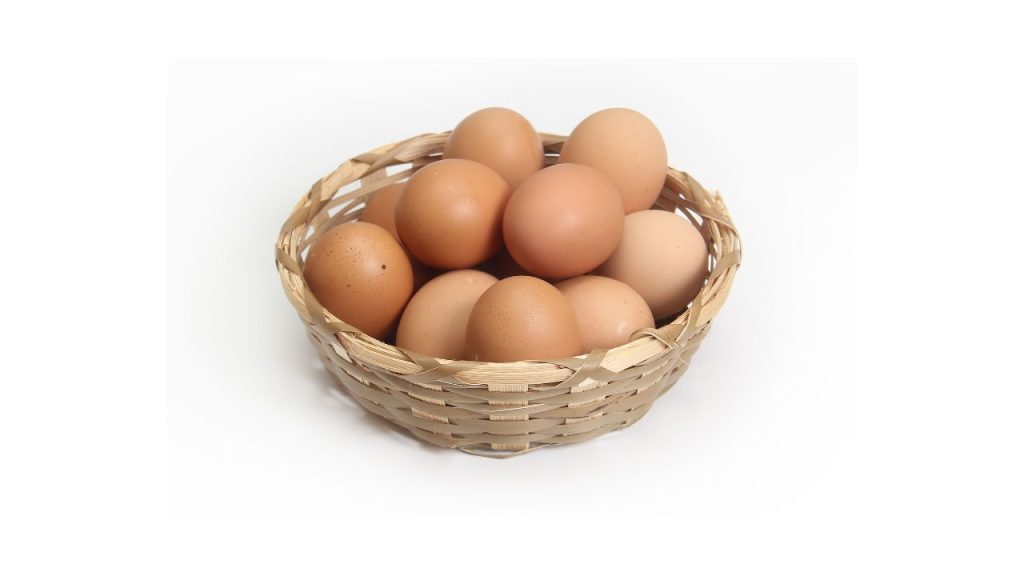
In addition to being a morning staple, eggs are a great source of choline, vitamin B12, and folate, all of which are good for the brain.
Why they help:
- Choline helps build acetylcholine, a neurotransmitter involved in memory and learning
- B vitamins reduce homocysteine levels (which are linked to brain fog)
Quick tip: Don’t skip the yolk — that’s where most of the choline lives!
5. Avocados — Creamy and Clever
Avocados are creamy, delicious, and full of monounsaturated fats that keep your brain humming.
Why they help:
- Improve blood flow to the brain
- Reduce blood pressure (a factor in mental fatigue)
- Contain lutein, an antioxidant associated with cognitive function
Try this: Spread it on whole-grain toast or blend it into a smoothie.
6. Coffee (in moderation) — Your Brain’s Best Wake-Up Call
Yes, your morning cup of coffee actually helps reduce brain fog — if you don’t overdo it.
Why it helps:
- Caffeine boosts alertness and reaction time
- Contains antioxidants that support brain health
Pro tip: Don’t rely solely on caffeine. Pair it with brain-healthy foods for long-lasting benefits.
7. Walnuts — Brain-Shaped for a Reason
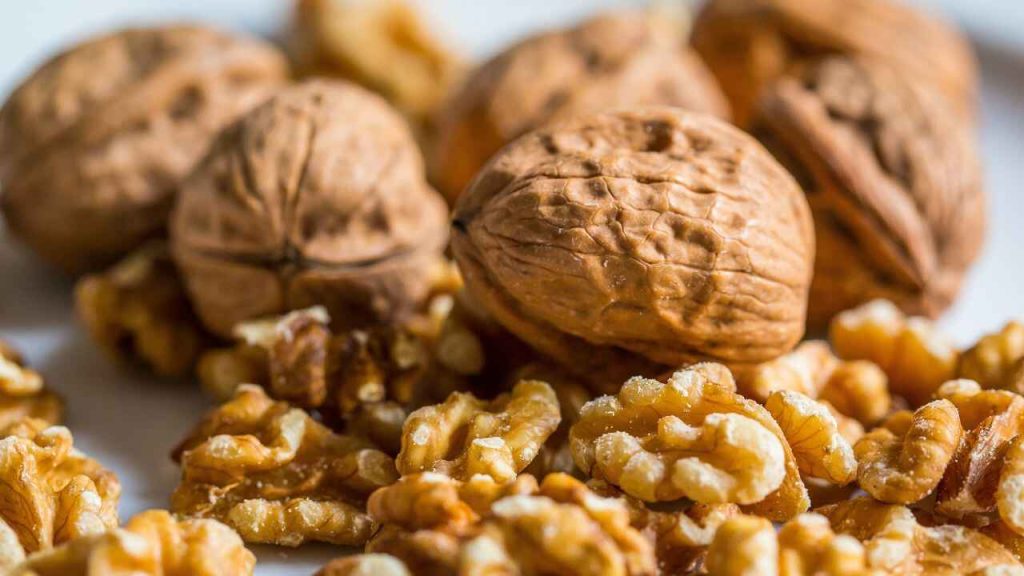
It’s kind of poetic that walnuts are shaped like tiny brains because they’re incredible for brain health.
Why they help:
- High in ALA (a plant-based omega-3)
- Contain polyphenols that combat oxidative stress
- Support memory and mental clarity
Snack smart: A small handful a day goes a long way.
8. Dark Chocolate — A Delicious Brain Booster
Yes, chocolate — as long as it’s the dark kind (70% cacao or more).
Why it helps:
- Contains flavonoids, caffeine, and antioxidants
- Boosts mood and mental energy
- Improves blood flow to the brain
Just be careful: Eat it in moderation to avoid sugar overload.
9. Citrus Fruits — Vitamin C for the Mind
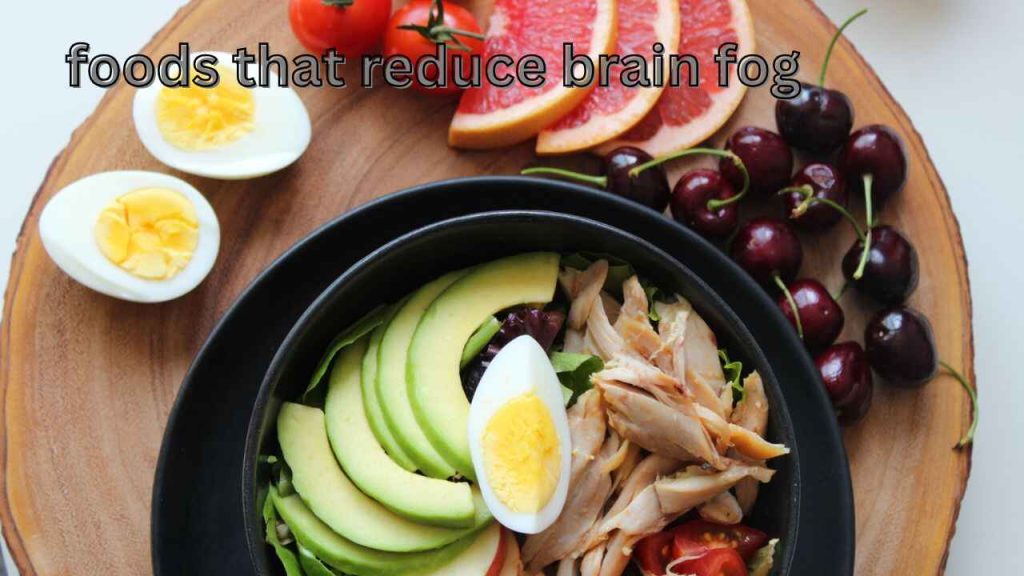
Vitamin C is abundant in oranges, grapefruits, lemons, and limes, and your brain loves it.
Why they help:
- Vitamin C fights oxidative stress
- Supports neurotransmitter function
- Enhances mood and memory
Tip: Start your day with a glass of warm lemon water to hydrate and detox.
10. Fermented Foods — The Gut-Brain Connection
Your brain and gut are intimately related, and the state of your digestive system can affect how clear your mind is.
Yogurt, kimchi, sauerkraut, kefir, and miso all contain probiotics, the good bacteria that keep your gut (and brain) happy.
Why they help:
- Support healthy digestion
- Improve mood and focus
- Reduce inflammation linked to brain fog
Try this: Add a spoonful of fermented veggies to your lunch or opt for probiotic-rich yogurt in the morning.
Final Thoughts
Brain fog doesn’t have to run your life. With just a few changes to your plate — adding more leafy greens, omega-3s, berries, and healthy fats — you can clear the mental mist and feel sharper every day. Think of your meals as fuel, not just filler. When you give your brain what it needs, it rewards you with clarity, energy, and focus.
FAQ: Foods That Reduce Brain Fog
Q1: How long does it take for food to impact brain fog?
A: Some people notice improvement in focus and energy within a few days of eating better, but for lasting results, give it 2–4 weeks of consistent healthy eating.
Q2: Are supplements a good alternative?
A: Whole foods are best, but supplements like omega-3, vitamin B12, or magnesium can help if you’re deficient.
Q3: What should I avoid if I have brain fog?
A: Avoid processed foods, excessive sugar, artificial sweeteners, alcohol, and too much caffeine.

